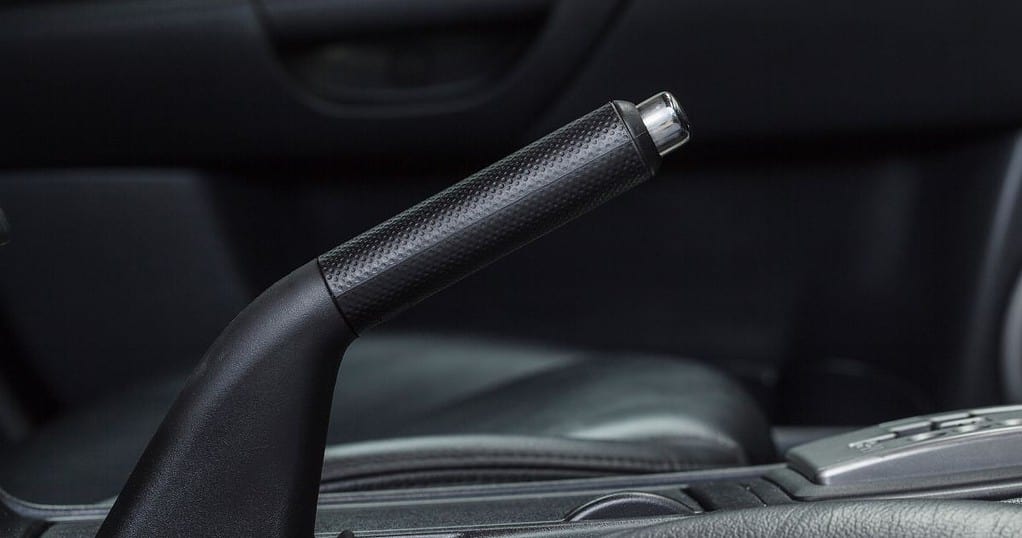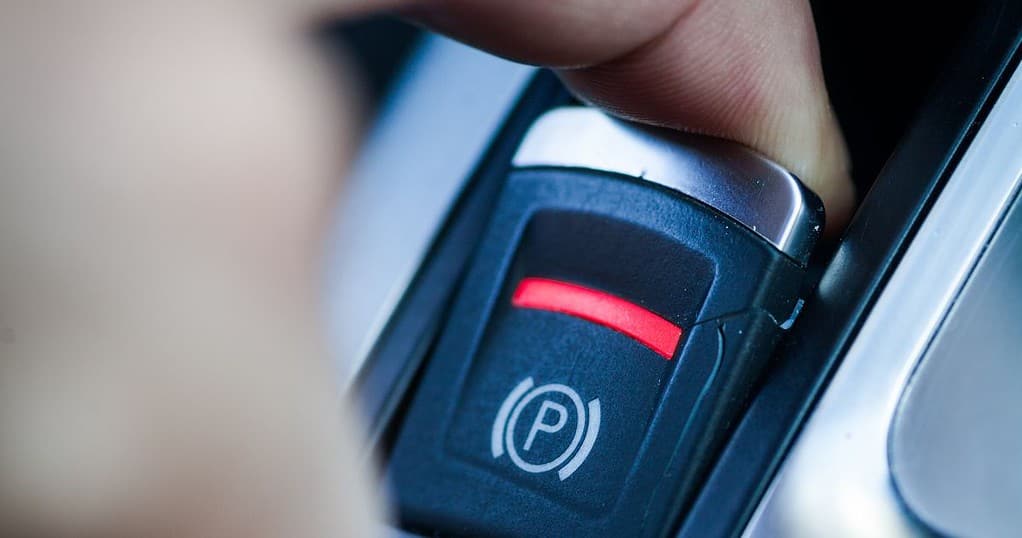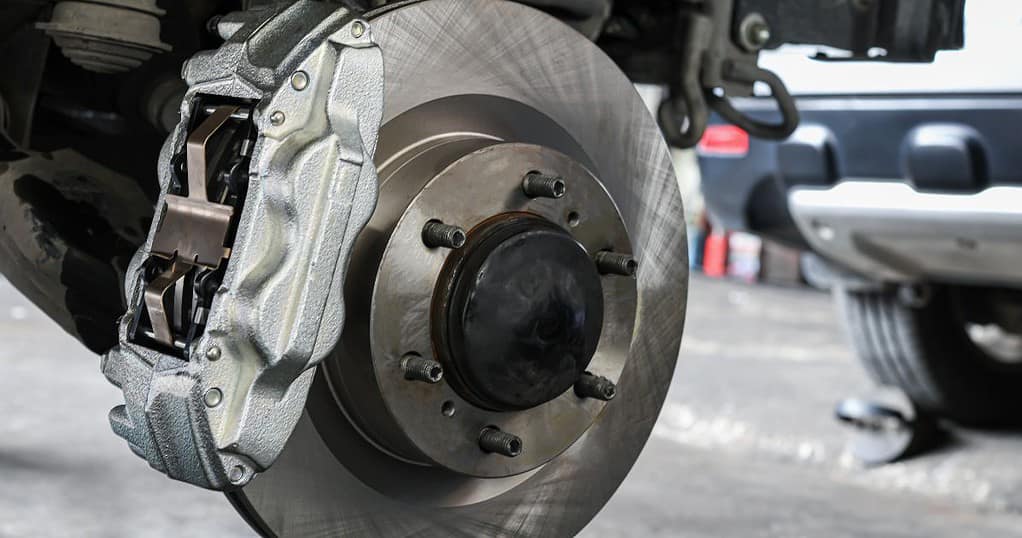Electric vs Manual Parking Brake: Which is Best?
When new features are introduced into the auto market they eventually become commonplace, but when it comes to electric vs manual parking brakes, haven’t you wondered which is best? Are the electric ones that are becoming increasingly common as good as, or better than, a regular manual parking brake?

A manual parking brake uses a physical cable to apply the rear brake shoes, while an electronic parking brake uses a switch to activate electric motors to apply the rear brakes instead. An electric parking brake is easier and more convenient to use than a manual parking brake, but manual ones can be more resilient and more reliable than their electric counterparts in some circumstances.
What is an electric park brake?
An electric park brake (EPB) is an electronic system with a switch or button that brakes or releases a vehicle in certain circumstances and replaces a manual system where a lever is physically connected to the brake by a wire. Instead of physically applying the brake, the driver presses the switch or button which sends an electronic signal to a servo that’s remotely connected to the brake.
Most of the time these days, a new vehicle will come with either a manual or an electronic park brake, so it’s not often an option for the buyer. Some entry models might have a manual park brake while the vehicle’s higher trim levels get an electronic one, but it’s not common for a manual one to be standard with the option of upgrading to an EPB without going to a higher trim.
Electric parking brakes: the good news
There are genuine reasons why electric parking brakes are a good idea in modern vehicles, and it’s not just because they’re the latest new thing and something cool to tell your friends your vehicle has.
If you’ve ever had anything to do with disabled drivers and modifying vehicles so they can be driven by someone with specific physical challenges, you’ll know right away what a help an electronic parking brake can be. It removes the need for almost any physical effort, so if someone can possibly drive a vehicle with the right modifications the parking brakes is one less thing to worry about having to modify.
There’s also the issue of interior space that helps make the case for electronic parking brakes. The traditional manual handbrake that is usually located between the driver and front passenger seats takes up quite a bit of space and is actually a bit ungainly.
Whether we like to admit it or not, we have a lot of stuff these days and the more space there is to store it safely in a vehicle the better. That area freed up by an electric park brake can then be used for cup holders, as a mobile device storage and charging area, or just as a useful cubby space.
Perhaps surprisingly to some people, an electric park brake can give a firmer and more secure hold than a regular manual park brake because the cable used in manual systems can stretch over time and give a less secure hold if it isn’t adjusted.
An EPB can also be used as a backup system in the event of your hydraulic brakes failing. If you were to stand on the brakes of your vehicle and find nothing happens, activating the EPB while moving will gradually brake the rear wheels safely using the ABS system.

Electric parking brakes: the not-so-good news
If you’re the sort of person who likes to tinker with your vehicle yourself, you’re probably not going to be too impressed with these electronic systems. With them being electronic, the chances are you’ll have to visit a garage to get it adjusted and to get the brake shoes changed.
To be able to open up the brake calipers to remove and replace the shoes will need an expensive diagnostic laptop, so even if you are a pretty handy home mechanic, you’re going to have to visit a professional.
Electronic park brakes can have a tendency to stick, especially if they’re not used for some time. If you park your vehicle up with the electronic park brake on and you don’t go back to it for a few days or longer, you can find that it won’t disengage when you try to drive away. Most of the time, it will eventually disengage by applying more revs, but that can be risky if you have a vehicle parked close in front of you.
Vehicles that go off-road can be particularly susceptible to this if there’s dirt and mud that dries on the brakes and makes them even more likely to stick. I remember the early Land Rover LR4 models had electronic park brakes, and the guys in the know at the company’s off-road driving centers used to tell us not to apply the electronic park brake if the vehicle had an automatic transmission.
If it was an auto it wouldn’t roll away because it would be braked by the drivetrain, but if it was a manual you would have to leave it in gear to avoid applying the EPB.
Unfortunately, a lot of today’s electronic park brakes have now been made “idiot-proof,” so you don’t have the option of whether to apply them or not. Once you turn the engine off, even if you haven’t physically pressed the button, the parking brake will be applied automatically. If you don’t want to apply the parking brake it’s tough luck, I’m afraid.
Manual parking brakes: the good news
Manual parking brakes are safe, simple, and relatively reliable, but only up to a point. If they are used regularly and properly maintained and adjusted, a manual parking brake will operate perfectly well. Even if you have an issue with your manual park brake, it’s not going to be too difficult to either fix it yourself if you’re up to that sort of thing or to find a professional who will do it for a relatively small amount of money.
If you’re a bit of a driving enthusiast and you have been reading this waiting for a certain issue to be raised, I’m not going to keep you waiting any longer. Here it is. A manual hand brake allows you to do handbrake turns, which is something you cannot do with an EPB.
Of course, I’m not going to endorse or recommend carrying out handbrake turns on the public road, but if you like to have a blast on a track or somewhere else away from the public highway, a manual handbrake is a lot more fun, and a lot more conducive to more expressive driving.
Manual parking brakes: the not-so-good news
Manual parking brakes are bulky and old-fashioned, and they take up a lot of room inside a vehicle. Some people inevitably prefer anything old-school and don’t like new-fangled gadgets, and I get that.
Those people might want to believe manual park brakes are more reliable because there are physical, tangible systems where they can see and touch every part and component between the handle and the brake itself. Unfortunately, there’s more chance of wear and tear causing failure with a manual park brake.
There are a number of weak points in a manual park brake that can fail, such as the button, the ratchet, and the cable that you just don’t have to worry about with an electric park brake. These are in addition to problems that can occur with the brake components that are common to both systems, such as the calipers and shoes.

The verdict
I’ve been driving cars and SUVs with electric parking brakes for the best part of a decade now, and if I was given a choice, I’d choose an electric brake over a manual one every time. I don’t choose a vehicle because it has an electronic park brake, and I wouldn’t reject one simply because it didn’t have one.
However, I have to admit that it is one of those features I’ve grown accustomed to now, and I’m not sure I would be too happy about having a vehicle for a couple of years or more now that didn’t have an electronic park brake.
If you’re the sort of person who finds themselves needing or wanting to do handbrake turns some of the time or you like to fix your car yourself, an electronic park brake is going to be a no-go for you.
However, if you’re one of what I believe is the majority, who like things to be as simple, reliable, and convenient as possible, an electronic park brake is the way to go. It’s a lot like electric windows, air conditioning, navigation, and parking sensors; once you had them for a while you’re going to be reluctant to go without them, even if you didn’t think they were essentials when you first got them.
